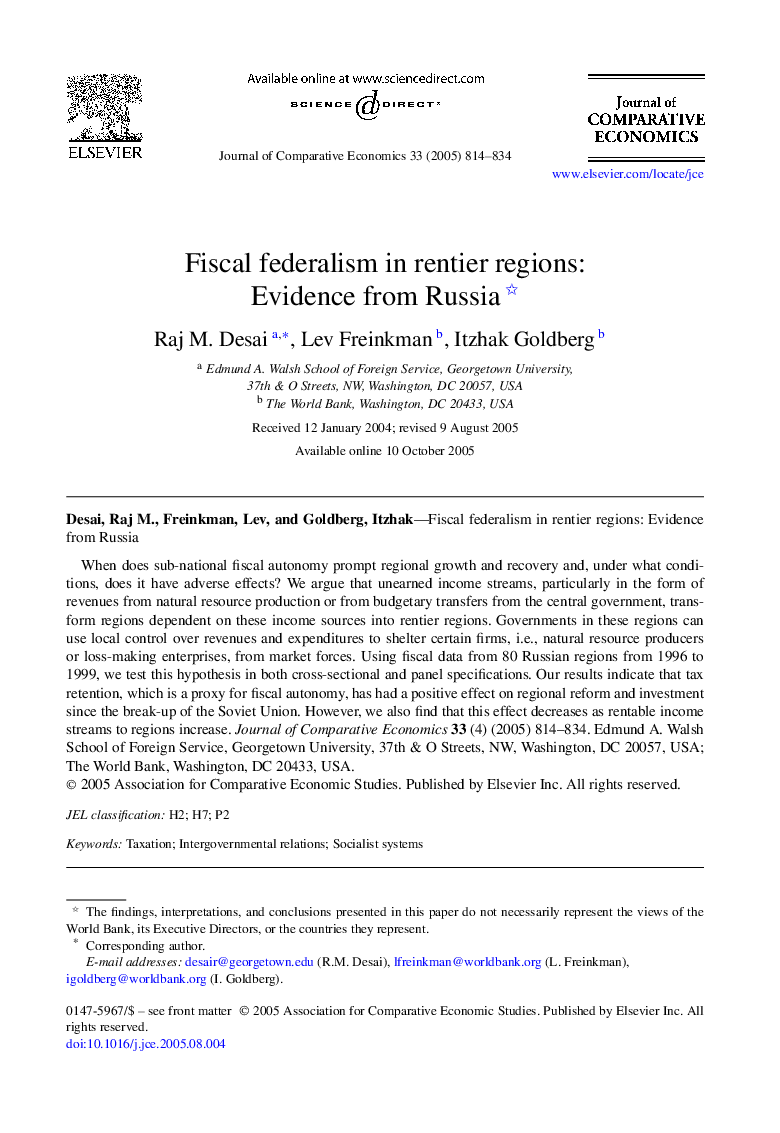| Article ID | Journal | Published Year | Pages | File Type |
|---|---|---|---|---|
| 9554537 | Journal of Comparative Economics | 2005 | 21 Pages |
Abstract
When does sub-national fiscal autonomy prompt regional growth and recovery and, under what conditions, does it have adverse effects? We argue that unearned income streams, particularly in the form of revenues from natural resource production or from budgetary transfers from the central government, transform regions dependent on these income sources into rentier regions. Governments in these regions can use local control over revenues and expenditures to shelter certain firms, i.e., natural resource producers or loss-making enterprises, from market forces. Using fiscal data from 80 Russian regions from 1996 to 1999, we test this hypothesis in both cross-sectional and panel specifications. Our results indicate that tax retention, which is a proxy for fiscal autonomy, has had a positive effect on regional reform and investment since the break-up of the Soviet Union. However, we also find that this effect decreases as rentable income streams to regions increase. Journal of Comparative Economics33 (4) (2005) 814-834.
Keywords
Related Topics
Social Sciences and Humanities
Economics, Econometrics and Finance
Economics and Econometrics
Authors
Raj M. Desai, Lev Freinkman, Itzhak Goldberg,
